Moët & Chandon
Moët & Chandon Impérial Brut Gold Sleeve - 75CL
Moët & Chandon Impérial Brut Gold Sleeve - 75CL
The Moët Imperial BRUT, an icon among champagnes, embodies seductive elegance and vivacity.
The Golden Sleeve design captivates with its visual appeal and embodies luxury and quality, ideal as a premium gift. This elegant champagne is made from carefully selected Pinot Noir, Meunier and Chardonnay grapes. After a thorough ageing process that allows the aromas to fully develop, the champagne is bottled and sealed with a natural cork.
HOW TO ENJOY
HOW TO ENJOY
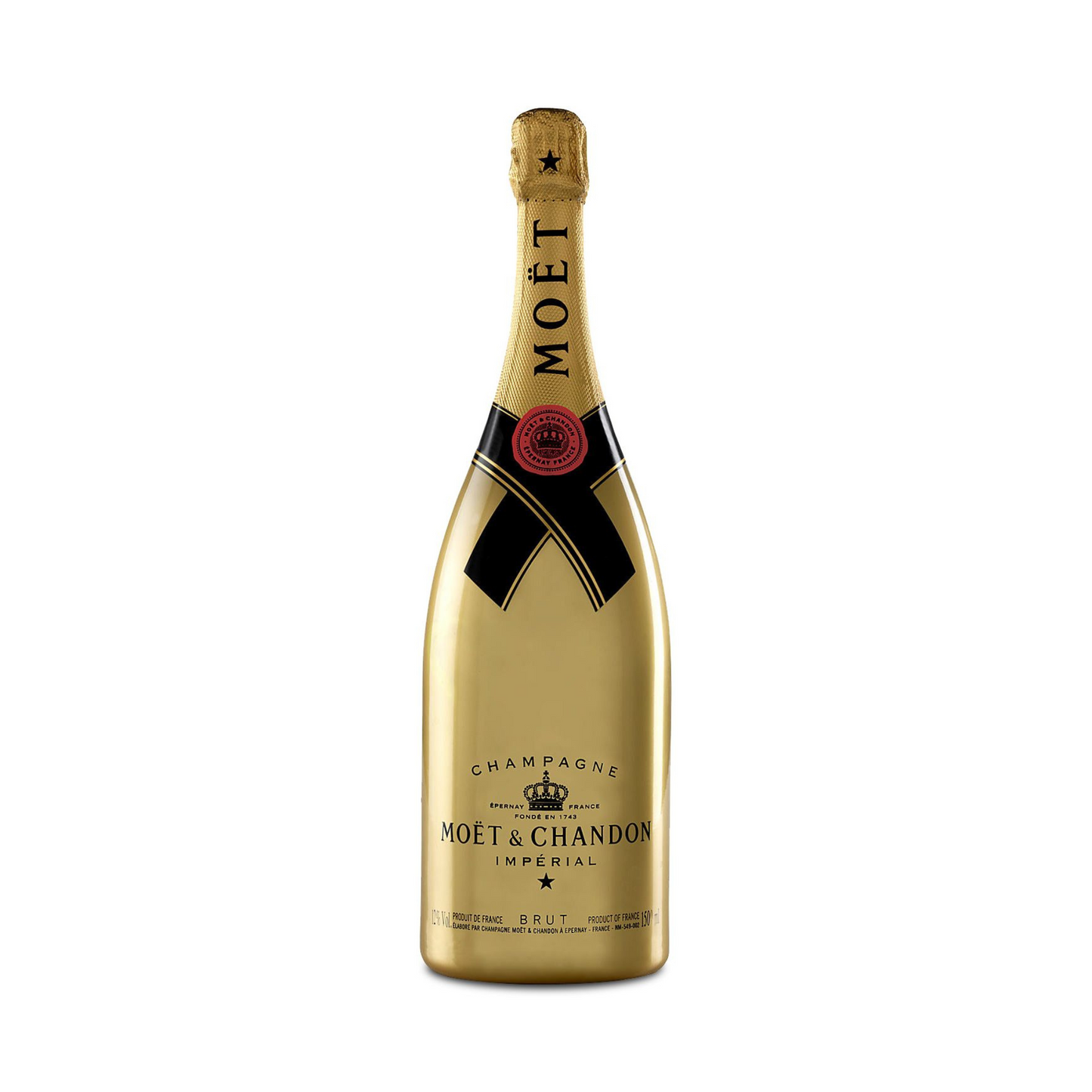
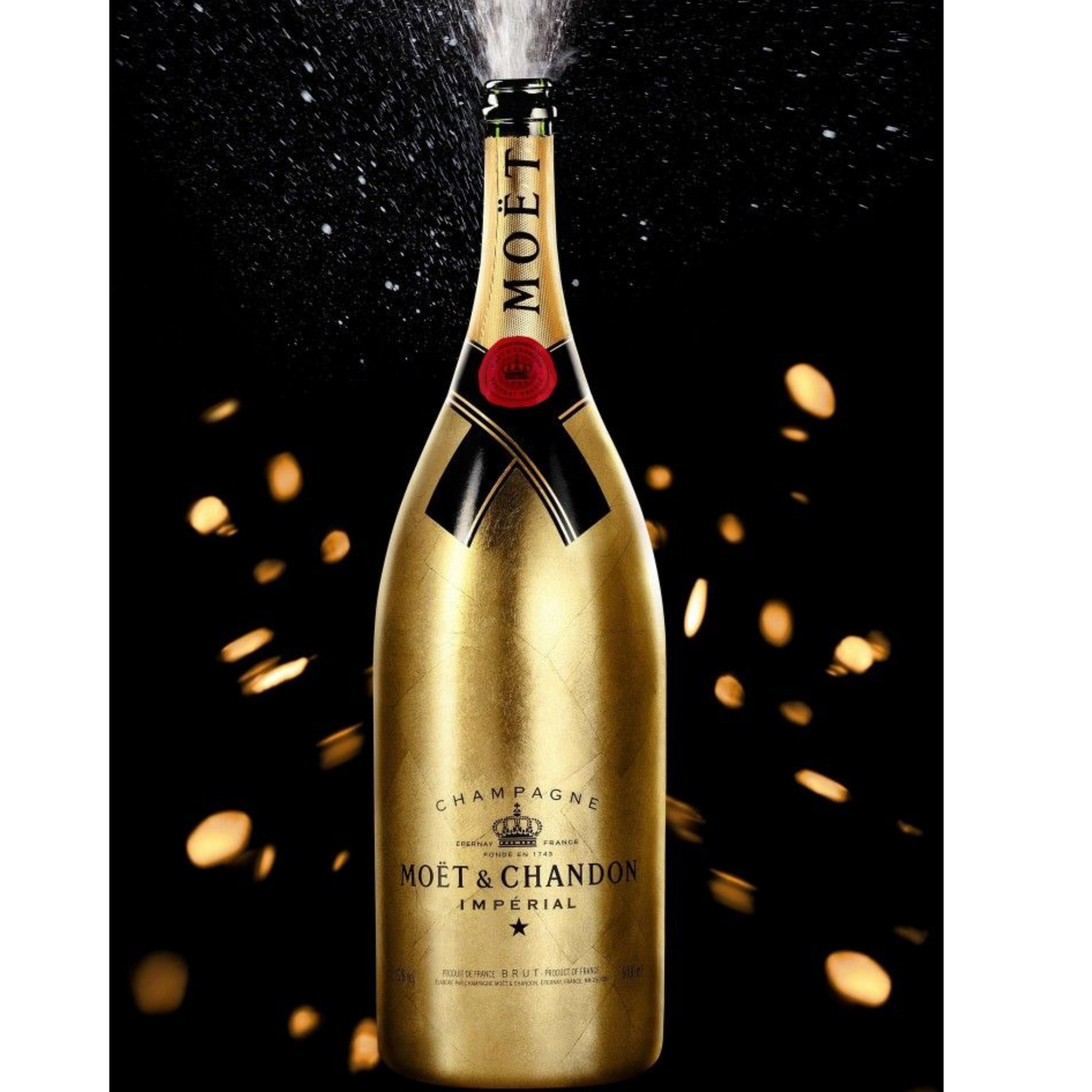
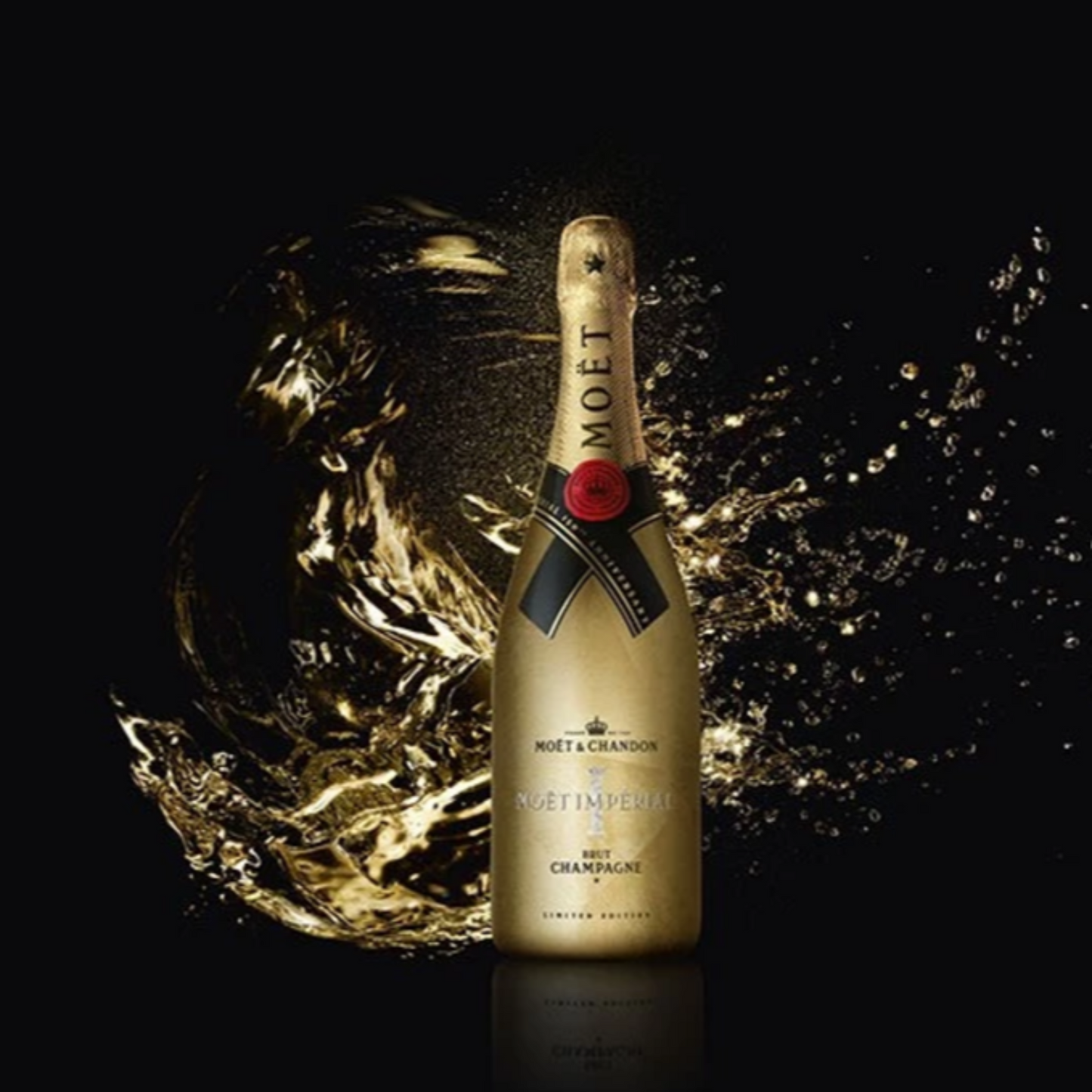
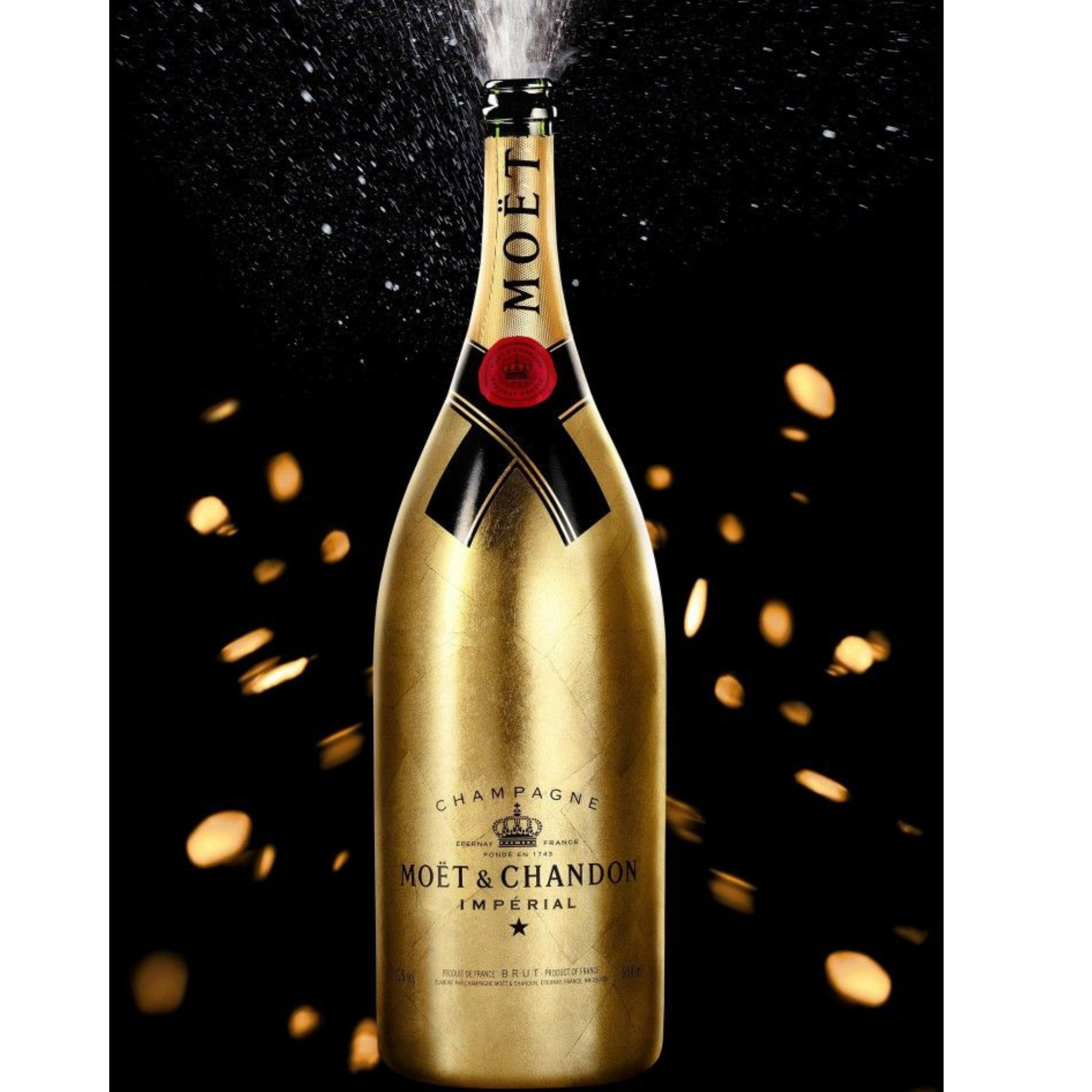
Appearance: Golden straw yellow with green highlights.
Aroma: A sparkling nose with tangy intensity of green apple and citrus fruit, the freshness of mineral nuances and white flowers and the elegance of blond mature notes: brioche, cereals, fresh nuts.
Taste: A palate combining generosity and subtlety. The delicious generosity of white fruits (pear, peach, apple). The alluring caress of fine bubbles and the soft vivacity of citrus fruit and gooseberry nuances.
For a perfect tasting experience, Moët & Chandon suggests to pair Moët Impérial with the following dishes: as a starter, serve delicate seafood such as prawn, crab or scallops, as an entrée, serve poached fish, such as sea bass, in light sauces, or chicken poached with herbs such as tarragon or thyme, as a dessert, pair it with a white peach tart, poached pears or roasted apples
Epernay, Champagne France
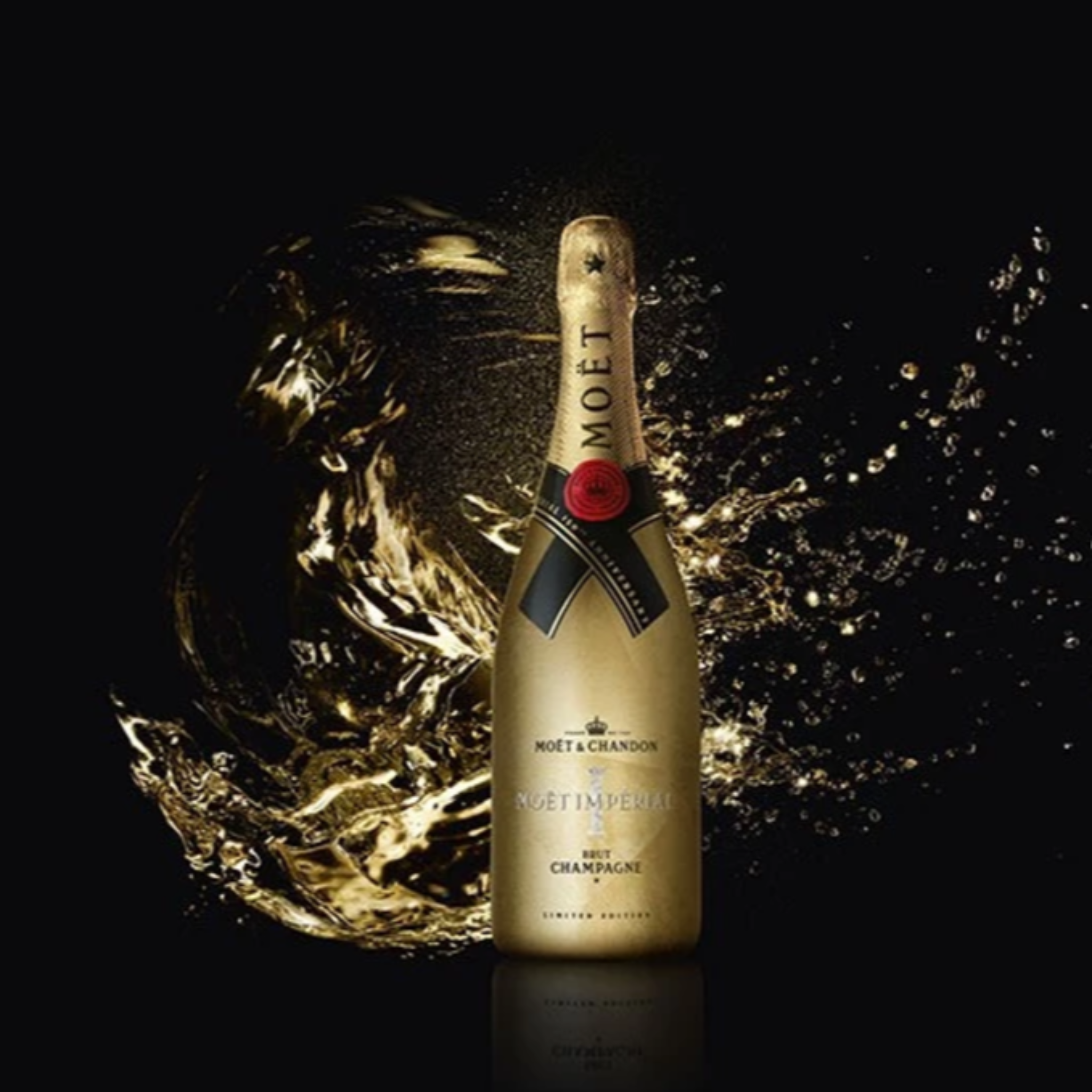
2018 Silver International Wine Challenge
WORTH A TRY
EXCEPTIONALLY CRAFTED CHAMPAGNES
Cognac tradition. Craftmanship. Creativity. Centuries of expertise. Discover the full Hennessy Cognac range and enjoy a unique cognac tasting experience. Could Richard Hennessy and his eldest son James possibly have imagined at the end of the eighteenth century that, one day, their cognac would have travelled the world over, ignoring borders and challenging traditions?



